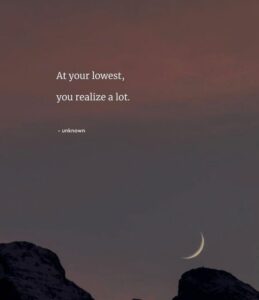《自律養生實踐家之旅360》 頭上有明示,腳下有明路

有那麼一天,當你走到某個定點,對於生命的所有路徑,突然出現強烈的感應:終於來到關鍵的轉折。那一刻的感應帶來更深的領悟:你必須保持健康,才能迎接屬於你的轉機。
我以第二人稱描摹這份意境,但真正的經驗由第一人稱承受。我在現場,領受那張票,接受屬於我的生命指引。
小時候,我對母親說:「媽,我要這個。」然後就握到了渴望。長大後,靠自己努力得到想要的人事物,可是目標從未幻滅,即便擁有已多。
擁有的軌跡塑造了人格,我曾觀察大學時期需要靠家教賺學費的同學,也觀察過孩子是否半工半讀的成長差異。
從「溫室花朵」到「井底之蛙」,前者是老師對我的評語,後者是父親對我的提醒。到了熟齡才明白:人生的障礙,往往是腦中的空中樓閣。
回想對母親說那句「我要」,再回看生命路上那句堅定的「我是對的」,便能看清那個「永遠不夠的我」與那個「永遠還能更好的我」。
前方的路標清楚寫著:「我不缺了」。
終於明白:人生當以「無我」為旨,把「我」放下,才開啟真正的人生。
三十年前領受的生命哲理,必須走過、跌倒過、爬起過,才會被納入覺悟的口袋。從領受到覺悟,對照從擁有到失去,既然從未真正擁有,何來失去?不經「道」,何來「知」。
這是我經歷第二階段的重生,第一階段是從失魂落魄中驚醒;第二階段是心法的徹底改造,我徹底放下的是那些過度理想化的海市蜃樓。
如今我仍在,仍有想法與觀點,仍會記錄那些領受的禮物與過往的經歷。因為前方的路就是禮物,路上的每一個路標,都是生命交付的提示。
「為什麼他有,而我沒有?」、「為何是他,而不是我?」,兩句話道盡人類貧窮的劇本,也總結了疾病的成因。
父親離去後,我才知道他名下的財產並非理所當然有我一份;妻子離去前,她親友間關於財務的歸屬已在醞釀。爭論存在,爭論也可以化為塵土;責任存在,責任也會化成灰燼。
病痛常孕育於這些元素之中:人的考題在「不足心法」中被放大。爭論成病,責任亦可能釀病;慾念是病,貪婪亦會化為病榻上的嘆息。
爭論之後是無止,慾念之後是無休,前方的路標寫著:「讓那個喧囂的世界逝去吧!」。
我忽然想好好去愛,想擁抱很多人。
回想多年前某個時刻,我領悟並且記錄自己的渺小,也曾以「時間不多了」形容生命的無常。然而責任一度讓我遺忘了渺小,願景曾令我對時間產生誤解。
難以抹去的是重要人物別離時的每一幕;葬禮後,親友還會聚餐,隔天我們依然回到工作崗位。
終有一天,世界會沒有我的影子,會忘記我的存在。是我的話語留在人們心中?還是我所做過的事?
期望我們的狂歡有意義,希望我們的哭聲有價值;若意義只是期待,價值只是虛妄,那麼在此刻我所想的,只是讓某個人擁有幸福,那便是意義,也是價值。
回到「你必須能保持健康,才能迎接屬於你的轉機。」 在此之前,或應先說「你必須能保持喜樂,才能迎接真正的健康。」 進一步而言,「你必須能真實享受無欲,才能真實擁抱喜樂。」
人生的每一步都有天意安排,但你能走多遠,取決於自身的承擔與能力。相遇是美好事件,相知是難得際遇,相惜則是稀有的讚頌。
(最低谷的時候,你會領悟許多事。(最低處,是領悟最多的地方。))
A Clear Sign Above, A Clear Path Below
One day, when you reach a certain point, you suddenly sense—deeply and unmistakably—that you’ve arrived at the crucial turning point of your life.
That moment of sensing brings with it a deeper realization: you must stay healthy to welcome the turning point that belongs to you.
I describe this moment in the second person, but the experience itself belongs to the first person.
I was there, holding that ticket, receiving the guidance life had reserved for me.
As a child, I would tell my mother, “Mom, I want this,” and soon, the thing I desired would be in my hands.
As I grew up, I obtained what I wanted through my own effort, but the goal itself never dissolved—even when I already possessed so much.
The trajectory of possession shaped my character.
I observed classmates who had to tutor in college to pay for tuition, and I watched the difference in growth between children who worked part-time and those who didn’t.
From “greenhouse flower” to “frog at the bottom of a well”—the first was a teacher’s description of me, the second my father’s warning.
It took reaching maturity to realize: the obstacles in life are often nothing but castles in the air built by the mind.
When I recall telling my mother “I want,” and later reflect on my own unwavering “I am right,” I can see clearly both the “me who was never enough” and the “me who could always do better.”
Ahead, the signpost reads clearly: “I am no longer lacking.”
I finally understand: life should be lived with the aim of “no-self.”
Only when you put down the “I” can you open the door to true life.
The philosophy of life I received thirty years ago had to be walked through, stumbled through, and risen from, before it could enter the pocket of awakening.
From receiving to awakening, from having to losing—if I never truly possessed, what is there to lose?
Without walking the “Tao,” how could I come to “know”?
This is my second rebirth.
The first was waking from a state of spiritual desolation; the second is the complete transformation of my inner method.
What I have let go of are those overly idealized mirages.
Now I am still here—still thinking, still seeing, still recording the gifts I have received and the experiences I have lived through.
Because the road ahead itself is the gift, and every signpost along the way is a message entrusted to me by life.
—
“Why does he have, and I do not?”
“Why him, and not me?”
These two questions sum up humanity’s script of poverty—and summarize the root of disease.
Only after my father’s passing did I realize that the property under his name was not automatically mine.
Before my wife passed away, disputes over financial inheritance had already been quietly brewing among her relatives.
Arguments exist, yet arguments can turn to dust.
Responsibilities exist, yet responsibilities too turn to ash.
Illness is often born out of these very elements.
Human trials magnify themselves within the “mindset of insufficiency.”
Arguments can become illness, responsibility can ferment into illness.
Desire itself is an illness, and greed becomes a sigh on the sickbed.
After argument comes endlessness.
After desire comes restlessness.
And the signpost ahead reads: “Let the noisy world pass away.”
Suddenly, I want to love well.
I want to embrace many people.
—
I recall a moment many years ago when I grasped and recorded my own smallness.
I once described life’s impermanence with the phrase, “Time is running out.”
Yet responsibilities once made me forget my smallness, and visions once made me misunderstand time.
What cannot be erased are the moments when key people departed.
After the funeral, relatives still gather for a meal, and the next day we all return to our posts.
One day, the world will be without my shadow, will forget my existence.
Will it be my words that remain in people’s hearts?
Or the things I once did?
I hope our celebrations have meaning, and our tears have value.
But if meaning is just expectation, and value just illusion—then at this very moment, what I hope for is simple: for someone to have happiness.
That, to me, is both meaning and value.
Returning to the first truth: “You must stay healthy to welcome the turning point that belongs to you.”
Perhaps even before that, we should say: “You must stay joyful to welcome true health.”
And even further: “You must learn to truly enjoy being without desire, to truly embrace joy.”
Every step of life is arranged by Heaven, but how far you can go depends on your willingness to bear and your capacity to carry.
To meet is a blessing, to know is a rare fortune, and to cherish is a precious hymn.


